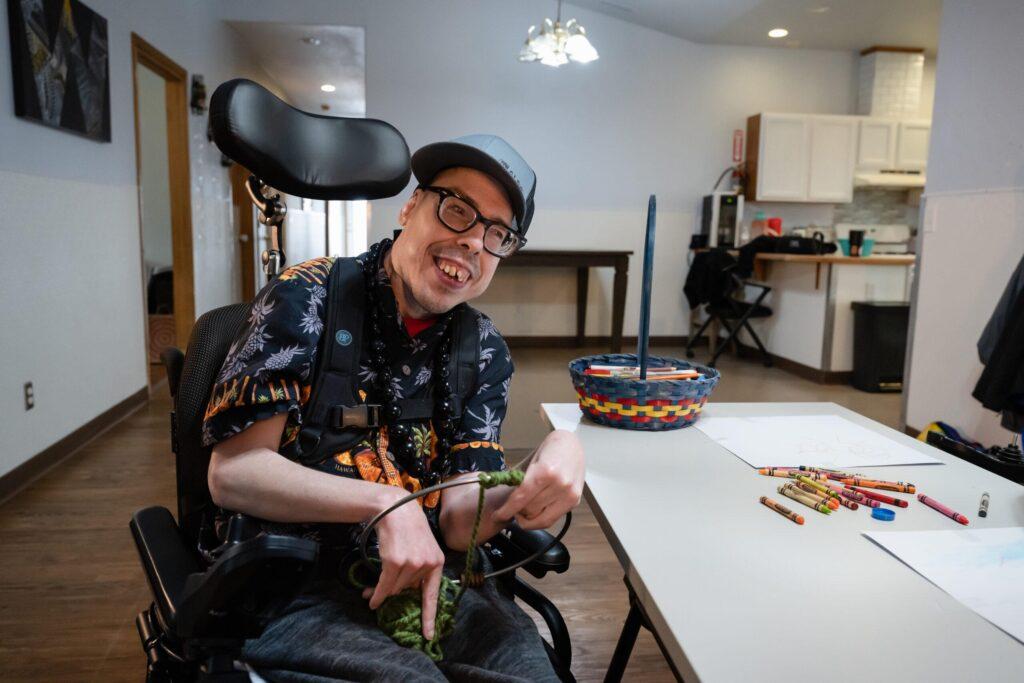Affordable housing for people with I/DD is in low supply. Learn what ALSO is doing to make a difference.
Affordable housing for people with I/DD is in low supply. Learn what ALSO is doing to make a difference.

We often think of gross motor skills as activities like jumping, catching a ball, or waving our arms. But did you know that these are also the skills that allow us to get in and out of a car, do our laundry, or even stand? In actuality, these daily activities have their foundation in a complex interaction between our brain and body.
As ALSO Direct Support Professionals (DSPs), we’re extremely knowledgeable about the important role that gross motor skills play in living an independent, satisfying, and full life. Similarly, we’re very well-trained at helping those we support with intellectual and developmental disabilities to compensate for and improve their gross motor abilities.
Gross motor skills1 are those skills we use to control our large muscle groups, generally in our legs, arms, and torso (the trunk). Without gross motor skills, we wouldn’t even be able to maintain our balance. The word ‘gross’ actually means large, and ‘motor’ is another word for movement. These skills depend on proper coordination of the following:
Gross motor skills differ from fine motor skills3 in several ways:
That being said, it’s important to realize that fine motor skills are highly dependent on the development of gross motor skills. Everything works together!
People embark on their gross motor development journey in the womb4 along with the development of the brain and spinal cord. The first physical movements are felt by mom, as the baby kicks and turns over.
Gross motor abilities in normal child development progress from head to toe.5 First, upper body muscle control develops, followed by lower body control. This means that babies will typically learn how to hold their head up first, followed by being able to sit up.
It’s almost like a series of building blocks, with one skill leading to the next. For example, infants will learn how to use their arms to pull themselves up, then stand without losing their balance, and then walk. As they progress in their physical activity level, they improve muscle strength, balance, and coordination, which in turn creates opportunities for more advanced motor abilities.
LEARN MORE: Benefits of Sensory Play for Children with Disabilities
Research indicates6 that motor competence creates multiple benefits. In infancy and early childhood, such skills are particularly important because they represent many developmental milestones that are the foundation for more advanced skills. For example, when infants learn to sit up, this allows them to remain stable while reaching for objects, so that they can work on finger dexterity and other fine motor skills. There is also research indicating a strong connection between motor activities and cognitive skills, benefiting both young and older children.
The healthy development of gross motor skills affects many aspects of a young person’s life. We all know the importance of sports participation for school-aged kids and teenagers. Additionally, participation in individual and group physical activity has a major positive impact on social skills, emotional development, and self-confidence.
When a person is born with, or develops a disability, this can have a major effect on the normal development of gross motor skills. Check out these 5 examples:
In addition to dedication to the independence of people living with developmental and intellectual disabilities, ALSO DSPs add the following targeted expertise in gross motor skill improvement:
If you’re a person with a developmental or intellectual disability, or you know someone who is, we welcome you to learn more about us.

Sign up for our newsletter to get our latest news, content, and job opportunities.
Help us ensure that everyone has the same opportunities in their home, workplace and community. Let’s make dreams!
